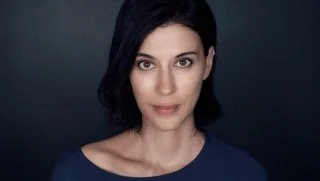Palestinian you should know: Reem Jubran
The following was originally published in the Palestine in America Film Edition. Please support our work by ordering a print copy, downloading a digital edition or becoming a subscriber.
Writer and director Reem Jubran is best known for her short film Mariam, which tells the story of a young Arab American drag queen who has to confront their father and grandparents about their identity.
Jubran joined the podcast to discuss her dream cast, why she became a film maker and what she hopes to accomplish.
Where are your parent(s) from in Palestine?
I’m quite the mix. My mother was born and raised in Benghazi, Libya–the second-to-last destination my grandfather sought refuge to after the Nakba– father from Lydd and mother from Ramallah.
My father is from a village in the Galilee called Rameh, and his mother was from a small village in Syria, called Al-Qnaya. My parents met in college in San Jose, California.
What’s your earliest memory of a movie or show that resonated with you?
I grew up watching a lot of movies. I would say that being exposed to Federico Fellini’s films as a young teen resonated the most. His films are all so weird and political and nostalgic. I remember making my mom take me to a theatrical 35mm screening of Amarcord and feeling a sense of belonging. His expansion of Italian neorealism guided me in my own understanding of political, satirical and freeform storytelling.
When did you decide you were going to pursue your dream of being in the arts?
As a teenager, I was quite the explorer. Not in a hip outdoorsy or adventure type, but some sort of curious arts geek on crack. I wanted to do everything. As an early teen I pursued drawing and painting. Then at 15, I was given my dad’s old Minolta and explored black and white photography, which became a core passion. I dreamt of becoming a photojournalist, inspired by the joy of discovering Palestine in all its beauty and pain, coupled with the irritation of growing up in a predominantly white, affluent town. It was comforting to look up to photojournalism in an alienating environment that constantly demanded explanations of my identity and justifications to my existence. I continued my learning spree and started to sew and enjoy designing and redesigning clothes. Around 19, I realized I wouldn’t likely be able to survive financially as a photojournalist (little did I know that not much would change as a director), that I didn’t want to study fashion, and that art school in Italy was too far-fetched, so I learned that directing films would combine my appreciation and joy in painting, fashion, photography and storytelling. That was the point where my dreams of a life in the arts was realized.
Is there an experience you’ve endured that highlights the Palestinian experience in the film industry?
Being Palestinian in the international film industry is itself a highlight alone in my pursuit of emerging as a director. Upon graduating from UC Berkeley in Film Studies (I know, no one goes to Berkeley for a degree in film) I moved to Palestine, where I worked as 1st and 2nd Assistant Director on Palestinian feature narrative films from 2016-2018. Prior to this, I had never set foot on a real film set with a crew; I had only done doc-style crew or homemade experimental films at that point. I was hooked immediately. I was learning film production from Palestinians, which aligned with my ambition of making films about Palestine for Palestinians. It was a joy to be in a production boot camp, albeit under occupation.
In 2018, I moved to Los Angeles to pursue an M.F.A. in Directing from UCLA. Since then, my experience as a Palestinian has expanded as I currently wrap up film school and transition into the real world. I value my time spent working in production in Palestine, in a place where the industry is young yet naturally thriving at its own and appropriate pace. I can’t imagine having learned how to make a film from a better place. It taught me how to make a film, and how not to make a film. The types of obstacles Palestinians that live full-time in Palestine and making movies have to face a struggling industry stripped from financial agency or autonomy. The realities of occupation, whether physical or mental, taught me the value of ethics, grassroots filmmaking, teamwork, dedication, and true joy and gratitude for filmmaking. I try to bring this attitude into my life and work in Los Angeles, California despite the toothy bites of Hollywood.




